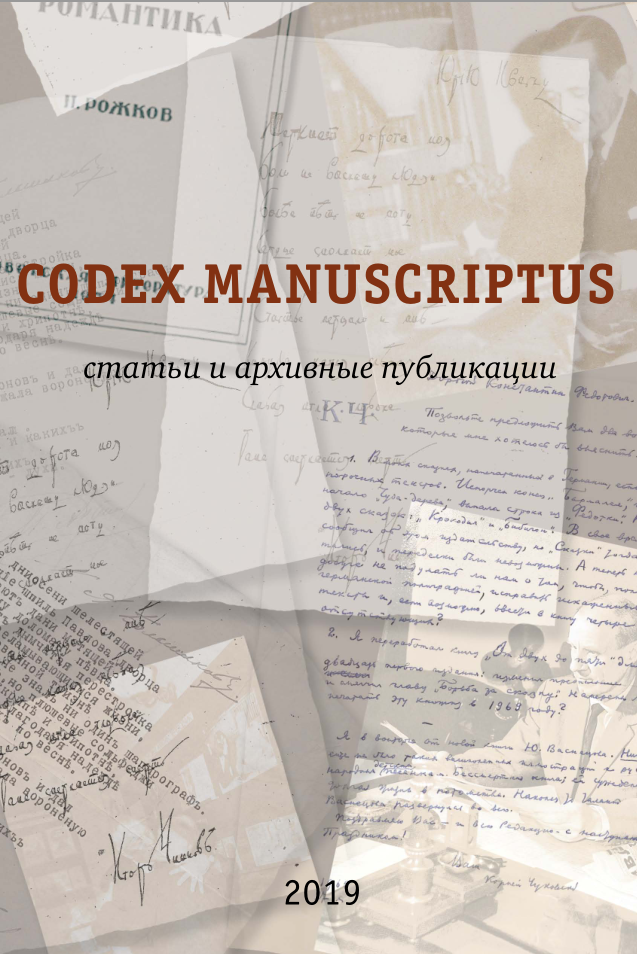
PDF
- DOI:
https://doi.org/10.22455/CM.2949-0510-2024-4-17-23
- EDN:
https://elibrary.ru/PESQOI
- Author:
Anna L. Gumerova
- About the author:
Anna L. Gumerova, PhD in Philology, Senior Researcher, А.M. Gorky Institute of World Literature of the Russian Academy of Sciences, Povarskaya St., 25A, bld. 1, 121069 Moscow, Russia. ORCID ID: https://orcid.org/0000-0001-9795-0974 E-mail: This email address is being protected from spambots. You need JavaScript enabled to view it.
- Author 2:
Valentina S. Sergeeva
- About the author 2:
Valentina S. Sergeeva, PhD in Philology, Senior Researcher, А.M. Gorky Institute of World Literature of the Russian Academy of Sciences, Povarskaya St., 25A, bld. 1, 121069 Moscow, Russia. ORCID ID: https://orcid.org/0000-0003-4693-7723 E-mail: This email address is being protected from spambots. You need JavaScript enabled to view it.
- For citation:
Gumerova, A.L., Sergeeva, V.S. “To the Question of the Theory of Fantastic.” Codex manuscriptus, issue 4. Moscow, IWL RAS Publ., 2024, pp. 17–23. (In Russian) https://doi.org/10.22455/CM.2949-0510-2024-4-17-23
- Keywords:
fantastic, realism, genre, fantasy, reader.
Abstract:
While studing fantastic literature, we inevitable face terminological problems and the ones of the borders apprearing both between different genres of the fantastic and (mainly) between realistic and fantastic literature, often between the realistic and fantastic inside the text. The problem of representation of these borders are in the poetics of the work. Ternminologic problems appear, in particular, because of the rapid development of the genre; for example, a separate problem is a term “fantasy” looking so familiar nowadays. We should, speaking about fantastic literature, speak of the role of a reader (implicit reader, citing Ts. Todorova) and of the specifics of the secondary reality shaping.






